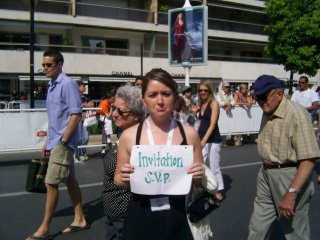Lying Review
I sometimes lie to make myself sound smarter or more important than I really am. I lie out of discontent with my real life. I lie because sometimes the truth doesn’t sound cool enough. I lie to cover up some sort of wrong action. I lie to spare others’ feelings. I lie to get out of doing something I’d rather not do. The point is, I lie. We all do. I don’t generally tell any really big whoppers, but the lies are still there, even when I’m not saying anything. My hair lies about its natural color. With the help of eyeliner and tweezers, my eyes and brows lie about their natural shape. To some extent, lies exist all around us. How interesting it would be to explore this idea in a feature film. Interesting, of course, unless the film in question is M Blash’s latest, Lying.
In what was described as a “magical” and “inspiring” script by lead actresses Chloe Sevigny and Jena Malone, Blash manages to make lying seem the most boring activity in which a person could participate.
Megan (Sevigny) has invited four girlfriends to her country house for the weekend. She has recently lost her parents in a tragic accident and needed to get out of the city for a few days. Joining her are Grace (Malone), Linda (Maya Goldsmith), and Hella (Halley Wegryn Gross). Grace and Hella work with Megan. Linda met her in a yoga class.
Over the course of the weekend, the four women bond and share about their lives. Eventually, Grace discovers Megan has been consistently lying about almost everything (for example, her parents are still alive and kicking). Grace, Hella, and Linda are upset by this dishonesty and decide to leave early. When a neighbor (LeeLee Sobieski) stops by to ask why the guests have gone, Megan lies about the reason. Clearly she has a pathological problem.
I had the opportunity to hear M Blash talk about Lying on two separate occasions. He said he was fascinated by the fact that, even though we’re all probably good people, we all lie. Or, at least, we’ve all been lied to. He wanted to explore the different kinds of lying (outright lies, lying by omission, etc.), but also create a movie about silence. The two concepts seem contradictory and do not work well together on the big screen. Though the film clocks in at 92 minutes, the script was only 50 pages long. Considering the time-honored tradition where one page of script equals one minute of screentime, I had a hard time imagining what was going to happen in those other 42 minutes. Apparently, so did Blash. Much of that extra time is spent lingering on Sevigny’s face, or the view from the house, or the mundane movements of characters.
In addition to lacking dialogue, the film also lacks polish. In what seems like an attempt to be “arty” or “indie,” Blash allows shaky camera movement and terrible sound quality to make the final cut. The lines that do exist are so low and muffled, it is hard to make them out. On top of technical issues, the actresses staunchly refuse to enunciate, making it all the more difficult to understand what they are saying.
The film, shot using only natural light, is in many ways beautiful to watch. The palette is muted, even extending to the coloring of the actresses’ skin and hair. All of the characters are oddly dressed alike, but the wardrobe (coming primarily from the closet of Sevigny herself) contributes to the romantic, non-urban, dreamlike tone. The lowkey atmosphere could be complementary to a film with a more discernible plot or more interesting dialogue. Here, however, it only serves to reinforce the dullness.
Despite the title of the film, very little time is spent actually exploring the art of lying. Though the audience is clued in to the fact that Megan is a regular liar, no sense of her motivation is provided. Is she unhappy with her life? Is she seeking sympathy? She readily advises Linda to “just tell the truth” to her boyfriend, so she must understand the difference between lies and truths. So, does she lie for fun, then? I was left wondering.
Going into this film, I was so intrigued by the premise – we’re all affected by lies. I was caught up in a situation involving a lie told and was very interested in comparing my own circumstances to the characters’. I often view movies as catharctic and was looking forward to a free therapy session. The film was such a disappointment, however, I had to wonder if everyone involved had been lying about its brilliance as part of a weird promotional shtick. Surely Blash and the others could not truly believe this film was that spectacular.
Though there was great potential, the film could not live up to my high expectations. Lying is Blash’s first foray into feature film, and I can only assume things will get better from here. His first priority, however, should be surrounding himself with people who are not afraid to tell the truth about his work. Lying, after all, does no one any good.






